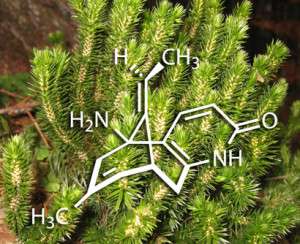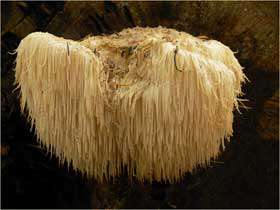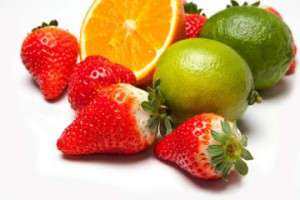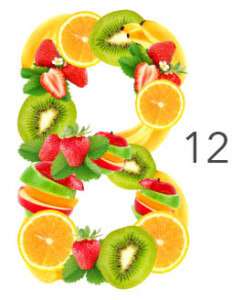3 Best (Natural) Nootropics for Better Memory
If you think that nootropics or smart drugs are all recently discoveries, think again. There are some outstanding natural nootropics that have been used to boost brain power for centuries.
The alpfirst synthetic smart drug was discovered just over 50 years ago, but that’s just the latest development in the long history of nootropics.
People have been using plants and their derivatives to enhance cognitive abilities for literally thousands of years. Here are three of the best natural nootropics, all known to improve cognition in general and memory in particular.
Read more: 16 Experts Explain How To Improve Memory With Nootropics
Natural Nootropics for Memory: My Top 3
1. Bacopa Monnieri
Bacopa Monnieri is a plant-based nootropic that has been enhancing memory, mood and brain health since it was discovered in ancient India.
Traditionally used in Ayurvedic medicine as a brain tonic, it remains an important medicinal herb and a popular choice for people who want a natural way to improve memory and reduce anxiety.
Bacopa monnieri generally enhances memory and cognitive abilities by improving synaptic communication. It encourages the growth and proliferation of dendrites, the “branched” nerve cell extensions along which neural impulses travel, which makes neural signaling faster and more efficient. This action is the key to bacopa’s ability to enhance both memory and general cognition.
It is also an effective anti-anxiety agent. One of its active ingredients is hersaponin, an alkaloid that has been demonstrated to have a relaxing, sedative-like effect.
Bacopa is also known to support the activity of GABA, a powerful inhibitory neurotransmitter that acts to prevent anxiety by restricting the firing of neurons that are over-excited by stress.
Unlike modern nootropics, bacopa monnieri is not a fast-acting supplement that has immediate observable results. Getting the most from bacopa involves a long-term regimen lasting weeks or even months.
Bacopa monnieri is also different from most modern nootropics in that it does have the potential for toxicity when taken in high doses. A daily cumulative dosage of 200 – 400 mg is generally considered safe and effective.
Bacopa monnieri works well to round out just about any nootropic stack. For anti-anxiety and stress relief, it works well in combination with other anxiolytic nootropics like aniracetam or phenibut.
For more mental and physical energy, bacopa pairs well with oxiracetam or phenylpiracetam. For optimal cognitive performance, it works well in combination with piracetam, pramiracetam, or adrafinil.
2. Huperzine A
 Huperzine-A is an extract derived from Chinese club moss, an herb of the Huperziceae family.
Huperzine-A is an extract derived from Chinese club moss, an herb of the Huperziceae family.
It has been used in traditional Chinese medicine for many centuries and is still considered an excellent nootropic capable of significantly improving cognitive abilities.
Its proven positive effect on memory is so remarkable that it is being seriously studied as a possible treatment for Alzheimer’s disease.
Huperzine-A works by increasing the amount of the neurotransmitter acetylcholine available for use in the brain.
Acetylcholine is known as the learning neurotransmitter and is the brain chemical most closely related to memory and cognitive abilities. Many modern nootropics work by stimulating receptor sites to increase acetylcholine production.
But Huperzine-A increases the amount of available acetylcholine in a different manner; rather than stimulating the production of more, it stops other substances from breaking down the acetylcholine already circulating in the brain.
This action, known as acts as acetylcholinesterase inhibition, results in a net increase in the crucial neurotransmitter.
Both animal studies and clinical trials with humans indicate that Huperzine-A is safe and well tolerated at recommended dosages. Huperzine-A is typically a very concentrated substance that is measured in micrograms rather than milligrams, and for purposes of cognitive enhancement daily dosage should not exceed 200 mcg.
There are generally very few side effects associated with Huperzine-A, though on rare occasions side effects including nausea, vomiting, and high blood pressure have been reported.
It is not recommended for use by anyone who has heart disease, seizure disorder, emphysema, or urinary tract blockages, or by women who are pregnant or nursing.
Huperzine-A works well on its own but is a very popular addition to other nootropic stacks and is often included in preformulated nootropic supplements like Alpha Brain.
Like all nootropics that interact with the acetylcholine system, Huperzine-A will perform best when used in conjunction with a good choline source like Alpha GPC, CDP choline, or centrophenoxine.
3. Lion’s Mane Mushroom
 Lion’s mane mushroom, also known as Hericium Erinaceus, Yamabushitake or Satyr’s beard, is another natural nootropic that has been used in traditional Chinese medicine for many centuries.
Lion’s mane mushroom, also known as Hericium Erinaceus, Yamabushitake or Satyr’s beard, is another natural nootropic that has been used in traditional Chinese medicine for many centuries.
Believed to act as a general tonic for a variety of health problems including kidney, liver, stomach and heart conditions, it can also significantly improve both memory and general cognitive abilities.
Lion’s mane has a mechanism of action that’s very different from that of other nootropics. Its primary cognitive enhancement action is the increase of NGF, or Nerve Growth Factor, in the brain.
NGF is a protein that is crucial for the survival and function of both sympathetic and sensory nerve cells; it promotes the growth and branching of axons, the long threadlike extensions along which impulses are conducted.
NGF also improves overall cognition by enhancing the overall growth and maintenance of the brain’s entire neural system, the vast and complex network of neurons and synapses through which neural signals are communicated. Increasing the amount of NGF is believed to boost memory by enhancing signaling speed and efficiency and improving communication between the hemispheres of the brain.
Lion’s mane is considered both safe and well tolerated, with no documented side effects. It is even thought to act as an immune system booster that will reduce inflammation and help maintain overall health.
The effects of lion’s mane are not immediately observable, so it must be added to a supplement regimen for a period of time in order to get maximum benefits.
Doses of up to 3,000 mg per day have been tested with no toxic effects, but a daily dosage of 500 mgs is generally recommended. It’s a good addition to other nootropic stacks and is often found in combination or preformulated stack products.
Natural Supplements for Memory: Runners Ups
1. Vitamin C
If you’re the guy who would rather take just one pill because you are pill-averse, vitamin C should be that pill. It has a multitude of benefits and scientists are discovering new ones even today!
 The first and last thing a doctor prescribes for a cold is vitamin C. I see you are scoffing, but cold is something that drastically erodes our day and is called the ‘common cold’ for a reason.
The first and last thing a doctor prescribes for a cold is vitamin C. I see you are scoffing, but cold is something that drastically erodes our day and is called the ‘common cold’ for a reason.
There is no cure for cold apart from vitC. Plus it helps keep heart disease at bay along with preventing certain types of cancers. The benefits of vitamin C truly are immense.
The catch: you need about 500mg a day for it to work its magic. That might not seem a lot, half a gram, but to extract that much vitamin out of greens you need to grind away at a bush’s worth of vegetation. In one sitting! I don’t know about you, but taking a vitamin C supplement is an easy way to save time.
2. Vitamin D
This guy is found all around us! Where you ask? Well, the greatest source of vitamin D is that big yellow ball in the sky – our sun! Our skin synthesizes vit D directly from sunlight and feeds it into the body. Sort of like a vampire but in reverse.
Who doesn’t love the sunny outdoors? Me. I don’t mind the occasional sunbath, but prefer not to be a sunburnt piece of meat at the end of a day. Which is exactly the amount of time I need to stay ‘sunny’ to get enough vitamin into my body. No, I’m not being a party pooper, I’m just being realistic. Sun rays’ carry a lot with them a lot of radiation that does not affect the skin in any good way.
I’d rather just pop my dose of supplements and stay cool.
3. Vitamin B12
 Can’t remember the name of the gorgeous, redheaded bombshell you met and had a great time with at the party last week? Gratz, you are now the proud owner of brain fog! And, if you happen to be less than 70, this is happening to you because you didn’t listen to your mom.
Can’t remember the name of the gorgeous, redheaded bombshell you met and had a great time with at the party last week? Gratz, you are now the proud owner of brain fog! And, if you happen to be less than 70, this is happening to you because you didn’t listen to your mom.
Clever guys in lab coats have found direct correlation to dementia and Alzheimer’s with deficiency of Vitamin B12.
B12 is found in meat and even if you do eat meat, you are advised to take supplements as you can’t nearly eat enough meat to satisfy you daily dose of the vitamin.
4. DHA
Stands for Docosahexaenoic acid, an omega-3 essential fatty acid. This is found in abundance in fish oil. Most people are O-3 deficient in the world. So you can get a huge edge over your competition at work just by popping a pill in the morning.
When we are talking about problems DHA can solve, it’s a long list. Memory loss, depression, mood swings and major stuff like dementia, Alzheimer’s disease, and ADHD. That is a good list of things you could avoid with your daily dose of this.
DHA is best with supplementation, because for an adequate dose you need to consume a lot of fish. Like that guy who’s after this ‘precious’ ring and hates ‘hobbitses’.
5. Alpha GPC
If the name doesn’t convince you to go for it, what it does will. Alpha GPC contains Cholinewhich synthesizes into Acetylcholine which is used as fuel by the brain. Awesome, right?
Choline is the body can provide you with a number of benefits ranging from increased ability of the brain to adapt to new problems and situations (neuroplasticity) to better muscle contractions for when you want to give yourself a good workout at gym.
6. Vinpocetine
It was earlier extracted from a kind of periwinkle plant but now manufactured in labs. Vinpocetine is actually used as medicine and not as a supplement in many countries.
Since it promotes blood flow in the brain, it prevents mental fatigue and also serious mental disorders like dementia and Alzheimer’s.
It also lessens the detrimental effects on a person who recently suffered a stroke.
7. Acetyl-l-Carnitine (ALCAR)
ALCAR is naturally present in the cells in our body. It stores energy and helps metabolize certain chemicals critical for our survival. It’s found in small quantities in meat. You can avail of its benefits in supplement form.
It is used to treat people with memory loss and chronic alcoholism. It can also act to elevate mood and provide relief from painful procedures like chemotherapy.
8. Ginkgo Biloba
Ginkgo Biloba is extracted from Ginkgo tree leaves. It can improve the circulation to the brain and also act as an antioxidant. In people without any mental disorders, Ginkgo improves memory and cognition.
It can also help with acute memory problems like dementia by controlling the degeneration of the disease.
There are no significant side-effects reported as it is naturally derived, but still care must be taken to not consume too much.
Are natural nootropics as good as modern synthetic compounds?
Both natural plant extracts and synthetic compounds have a place in the nootropic regimens of millions of people all over the world.
Natural nootropics alone may not fill all your needs, but they have a long and proven history of improving memory and general cognition, and are definitely worth a try.

